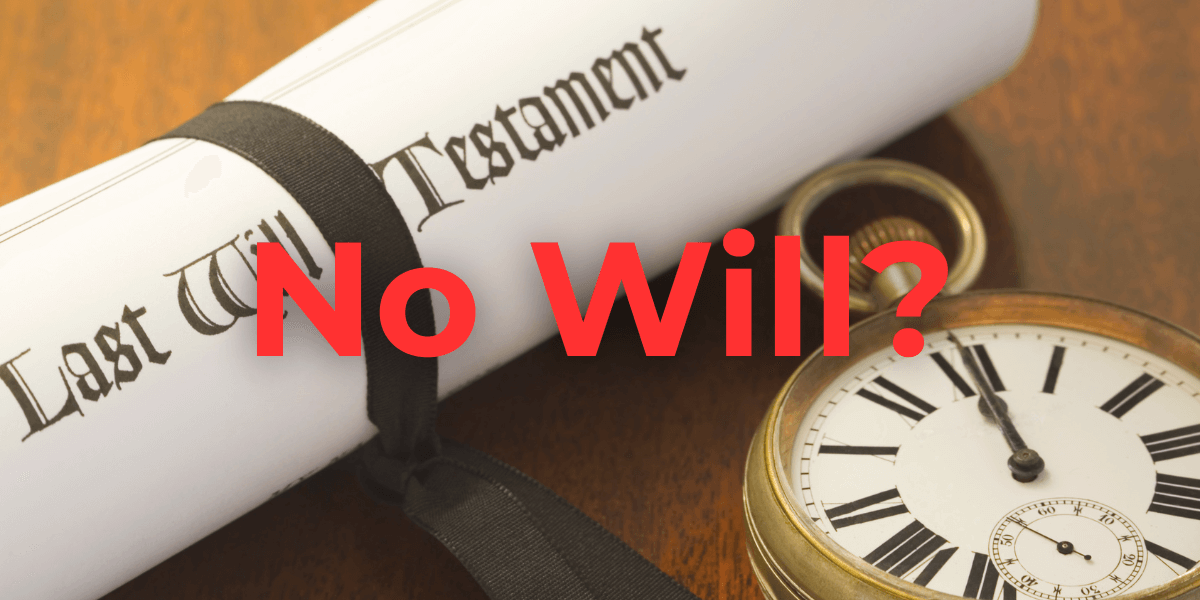Most people don’t like to think about death, but planning for it is one of the most important steps you can take for the ones you leave behind. Preparing a Will simplifies the process and reduces the conflict involved in distributing the wealth of the deceased. However, the real question is: what happens if you die without a will? The answer can be surprising and often not what you would have wanted.
In this article:
What Does Dying Intestate Mean?
Ontario’s Succession Law Reform Act
Who Manages the Estate Without a Will?
How Assets Are Distributed in Ontario
When There Is No Surviving Spouse
The Importance of Having a Will
Get Your Wills Prepared
What Does Dying Intestate Mean?
When someone dies without a valid Will or rather with no Will at all, the law steps in to decide how their estate will be distributed. This is called dying intestate.
Ontario’s Succession Law Reform Act
In Ontario the intestacy laws are set out in Ontario’s Succession Law Reform Act, which provides strict rules outlining how the estate is to be distributed. Under these rules, only spouses, children, parents or other relatives may receive part of the estate. Any common law spouse, close personal friends or charities would not receive anything unless they were named in a valid Will.
Who Manages the Estate Without a Will?
If a person passes without a Will, there is no one automatically appointed to manage the estate. Rather, an application must be made for an estate trustee to be appointed by the court, following the priority of entitlement which is first a surviving married spouse and then children. This process is known as applying for Certificate of Appointment of Estate Trustee Without a Will. This application can involve various time-consuming and complicated steps, such as completing application forms, compiling supporting documentation, providing notice to beneficiaries, posting a bond, and paying estate administration tax.
How Assets Are Distributed in Ontario
Once someone is appointed to administer the estate, Ontario’s intestacy rules provide the order of distribution of assets. If the deceased has a surviving legally married spouse, and no children, the spouse will inherit everything in the estate, subject first to the payment of the deceased’s debts, taxes and funeral expenses. If there is a surviving spouse and surviving children, the spouse takes a preferential share of either $200,000 if the deceased passed away before March 1, 2021 or $350,000 if they passed away on or after March 1, 2021. Everything that is left in the estate after payment of debts, taxes and funeral expenses, as well as subtracting the preferential share, is called the residue. The residue is divided between the spouse and children. With only one child, the residue is divided equally between the spouse and the child. However, if there is more than one child, the spouse receives one third of the residue and the remaining residue is split equally among the children.
When There Is No Surviving Spouse
If the deceased had children and no spouse, the children would share the estate in equal shares, and if any of the children have predeceased, then their portion may be distributed amongst their descendants.
If a deceased has no spouse or surviving descendants, then their estate is distributed in accordance with Ontario’s intestacy rules found in section 47 of the Succession Law Reform Act.
The Importance of Having a Will
The benefits of having a Will prepared outweigh the expense of having one drafted. For example, you will be able to choose who will inherit your assets, you can appoint an executor you trust to manage your estate, you can name guardians for minor children and it can help to avoid unnecessary family disputes and future legal costs. A properly drafted and thoughtful Will can also provide a mechanism for tax planning strategies. A Will is not just for those with large estates; it is important for anyone who wants peace of mind knowing their wishes will be respected. Having a Will not only ensures your wishes are respected, but can also save your family time, money, and stress by reducing legal costs, avoiding disputes, minimizing taxes, and provide clear direction for your estate.
Get Your Wills Prepared
If you’re interested in having your Wills prepared, or if you’d like to learn more about your estate planning options, please don’t hesitate to reach out to Matthew Sidsworth at msidsworth@himprolaw.com or by phone at 1-877-820-1210 extension 245. He’ll be happy to answer your questions and guide you through the process.
Written by Laura Spagnulo and Matthew Sidsworth.




